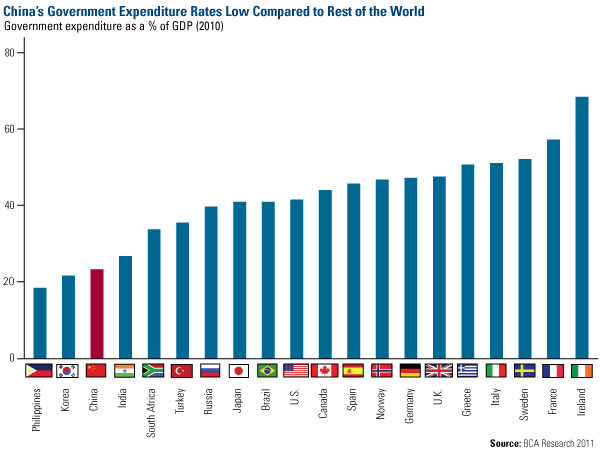|
Deteriorata posted:They don't. Fiscal policy is a tool with which to gain electoral advantage. Ohhh you can talk about ideology and political motivations that's fine. Just don't turn it into a repbulican/democrat bullshit fight about what they believe, rather go this is how their beliefs are going to work/not work out based off of fiscal/monetary policy Good - These taxes won't work out because the republican base won't allow for taxes to be rasied and the defecit will run wild Bad - Republicans suck and want to eat children for more money Good - Democrats are going to have a hard time collecting taxes from the corporations when they implement this policy bad - Democrats like raising taxes too much and I like my money If you see the line it makes sense how this thread *should* work and why it's different from the other political chat Badger of Basra posted:Such a policy has been labeled "unserious" in most of the developed world, so whether it would work or not is irrelevant because no one is going to do it. A lot of economists and policy people would agree that if your interest rates for debt are rock bottom you should be issuing more debt to take advantage, since it won't be any cheaper in the future. Is there a crafty way to sell to the public on issuing debt? How would it work if the Federal government wanted to issue public bonds for infrastructure? Do we already do that I can't remember if it's a federal thing or not to specify the bonds.
|
|
|
|

|
| # ? Apr 29, 2024 15:47 |
|
Veskit posted:Trump came out with his new yuuuge and glorious tax plan and it looks dangerously appealing to everyone involved except the mega rich. However on paper it seems ok from a republican standpoint, how enforceable is this plan? If implemented would it increase governmental revenue since most taxes are paid by the top anyway? From a brief look it looks insanely unenforceable to expect that you can collect on it, and the lack of corporate taxes seems really dangerous. First analysis I've seen of it from someone who ought to know what's up: quote:Roberton Williams, a senior fellow at the Tax Policy Center, told me today that it’s hard to see how this plan could attain revenue neutrality. While he cautioned that we still need to see a lot more detail, the plan seems to cut tax rates on the highest income so dramatically that there might be no way to offset that lost revenue through the elimination of deductions and loopholes. So at first blush it appears to be cut out of the same cloth that the rest of the Republican candidates - throw in a tax cut for the middle class to sell a tax cut for the rich, then claim it's revenue neutral without providing any actual details as to how it's possible. Don't ever take anybody's tax plan at face value, basically. While they all tend to be overly optimistic regardless of party or ideology, some rely more heavily on smoke and mirrors than others.
|
|
|
|
https://www.youtube.com/watch?v=b0y0r3I0kAI All policy is political
|
|
|
|
Deteriorata posted:So at first blush it appears to be cut out of the same cloth that the rest of the Republican candidates - throw in a tax cut for the middle class to sell a tax cut for the rich, then claim it's revenue neutral without providing any actual details as to how it's possible. I was legitimately hoping Trump would be one of the few to actually come out with a plan or idea that taxes the rich more. Sad because the rest of the tax brackets are crazy low, and no taxes on 25k and under is substantial.
|
|
|
|
Veskit posted:I was legitimately hoping Trump would be one of the few to actually come out with a plan or idea that taxes the rich more. Sad because the rest of the tax brackets are crazy low, and no taxes on 25k and under is substantial. I mean at the end of the day Trump is running for the Republican nomination and that means a pretty limited political window, that said he is tacking in more of a European style populist direction which is generally xenophobic but economically more to the center.
|
|
|
|
Veskit posted:Is there a crafty way to sell to the public on issuing debt? How would it work if the Federal government wanted to issue public bonds for infrastructure? Do we already do that I can't remember if it's a federal thing or not to specify the bonds. The federal government already subsidizes certain state and municipal bonds by allowing income gained by creditors from them to be tax exempt. The government could theoretically find other stealth tax breaks to encourage this kind of spending, but any kind would contribute to the deficit in the short term. This however is not sufficient for the kind of infrastructure spending America would need because states and municipalities still need to finance those bonds through taxes, which are generally politically unpopular. The federal government could of course do straight up fiscal transfers for spending on municipalities, like they did with the stimulus, but that contributes to the federal deficit which, again, is politically unpopular. Essentially the only way to make this kind of thing work is to convince the voters that investing in the future is worth it. Which would mean overcoming a Sisyphean mountain of shortsightedness in a country that cannot even agree that climate change is real or worth dealing with.
|
|
|
|
Jagchosis posted:The federal government already subsidizes certain state and municipal bonds by allowing income gained by creditors from them to be tax exempt. The government could theoretically find other stealth tax breaks to encourage this kind of spending, but any kind would contribute to the deficit in the short term. This however is not sufficient for the kind of infrastructure spending America would need because states and municipalities still need to finance those bonds through taxes, which are generally politically unpopular. The federal government could of course do straight up fiscal transfers for spending on municipalities, like they did with the stimulus, but that contributes to the federal deficit which, again, is politically unpopular. Essentially the only way to make this kind of thing work is to convince the voters that investing in the future is worth it. Which would mean overcoming a Sisyphean mountain of shortsightedness in a country that cannot even agree that climate change is real or worth dealing with. But you see, its snowing where I am, therefore :soundawetfartmakes:
|
|
|
|
I hadn't heard of Trump's tax plan before. I am no economic wizard, or even apprentice, but these things stood out for me.Trump's tax plan posted:The Trump Tax Plan Ends The Unfair Death Tax  "Trump's Toupee's tax plan. posted:These lower rates will provide a tremendous stimulus for the economy – significant GDP growth, a huge number of new jobs and an increase in after-tax wages for workers. Trump's tax plan posted:...it is only fair that corporations help make that move fiscally responsible. Trump's tax plan posted:...but the foreign tax credit will remain in place because no company should face double taxation. Trump's tax "plan" posted:We will also phase in a reasonable cap on the deductibility of business interest expenses. This almost looks more like a propaganda piece than a tax plan. Also I'm pretty sure Romney floated something similar (drop rates, remove deductions, friendly to middle class, revenue neutral) which a number of people poured over the details and basically declared Romney's ideas to be mathematically impossible. Buried alive fucked around with this message at 02:40 on Sep 29, 2015 |
|
|
|
quote:The death tax punishes families for achieving the American dream.
|
|
|
|
I was watching John Oliver and remembered reading about demographics and how Europe/japan/korea is going to be a disaster because nobody will have babies. Has fiscal policy been successful in any meaningful way in increasing fertility rates?
|
|
|
|
Veskit posted:Has fiscal policy been successful in any meaningful way in increasing fertility rates? Educated women tend to have fewer children. Women pursuing careers tend to have fewer children. Both of these effects can be mitigated by ensuring that child-related programs (such as family planning, obgyn, parental leave, pediatrics, nutrition, primary education, busing, and daycare) are highly available and delivered at minimal cost to parents. Here's an in-depth case study involving daycare in Norway. Here's a high-level comparison of childcare policies among OECD nations and their effects on fertility rates. The cheapest legislative answer for a wealthy nation facing sub-replacement fertility is probably "accept more immigrants." But that's not strictly fiscal policy, and it strays into political territory (viz. criminals, rapists, and - I assume - some good people).
|
|
|
|
Veskit posted:I was watching John Oliver and remembered reading about demographics and how Europe/japan/korea is going to be a disaster because nobody will have babies. Like GulMadred said though, being as there are still areas of the world with high birth rates, it would be easier and more pleasant to import more immigrants than to defund health and education or bribe/pressure people to breed more. Racists and nationalists don't like it but lol. Although is it really that much of a disaster if the population declines? It reduces pressure on housing stock and resource consumption, and a government not preoccupied with maintaining a permanent unemployed underclass could pay more for people to care for their older relatives. It might not be fair to do this while other countries still suffer with increasing populations, but it could work when population decline becomes a worldwide thing, which it hopefully will as health, education, women's rights, and access to contraception become more well spread.
|
|
|
|
Guavanaut posted:Like GulMadred said though, being as there are still areas of the world with high birth rates, it would be easier and more pleasant to import more immigrants than to defund health and education or bribe/pressure people to breed more. Racists and nationalists don't like it but lol I'd rather see a system in which demographic sustainability wasn't achieved through a wholesale uprooting and "importing" (what an unfortunate word, lol) of people subjected to suffering and economic injustice at home, hth.
|
|
|
|
As I said, the ideal situation would be that there would be a declining population in all countries as as health, education, women's rights, and access to contraception become more wide spread, but is it really fair for the countries with declining populations to sit back while other places' populations grow? I suppose through fiscal policy Europe could directly fund healthcare and education in the places with unsustainable demographic growth, which would rectify it as a consequence. Would you consider that to be unfair?
|
|
|
|
Veskit posted:I was watching John Oliver and remembered reading about demographics and how Europe/japan/korea is going to be a disaster because nobody will have babies. The best way to resolve this imbalance is assisted/medical suicide. Why should people want to live as long as possible? To be fiscal: people electing to end their lives rather than drawing things out will reduce medicare/medicaid expenses. (USER WAS PUT ON PROBATION FOR THIS POST)
|
|
|
|
Guavanaut posted:Looking at birth rates across the world, it seems like the best fiscal strategy for increasing them is "increase inequality and massively defund health and education". It does seem like some governments in Europe are toying with this, but I'd rather they didn't. Jesus christ that's depressingly true. I don't think I could have really put that together on my own. GulMadred posted:Yes, if you're willing to consider "spending money on social programs" as a valid example. If you want some kind of general Taylor Rule answer (e.g. fertility = marginal tax rate * depreciation rate ÷ GINI coefficient) then I can't help you. These look like good articles, I'll check them out! Of course the cheapest and easily best way is to just let people the gently caress into your country but I mean.... Like.... yeah lets not go there. Politics! Stop it.
|
|
|
|
Veskit posted:Politics! Stop it. Look, you really can't separate the two too much, considering that the GOP has basically made the Fiscal policy of the Federal Government key to their entire "Prove the Government Is Broken" stratagem. Kansas, Wisconsin, and now Illinois are living proof that Fiscal Policy is directly and overtly decided, made or destroyed by political agenda and its important to keep that political agenda in view when discussing Fiscal policies and their issues.
|
|
|
|
CommieGIR posted:Look, you really can't separate the two too much, considering that the GOP has basically made the Fiscal policy of the Federal Government key to their entire "Prove the Government Is Broken" stratagem. Then talk about how fiscal policy destroyed kansas, wis, and Il, how it did, then explain how the politicians exploited people by making something bad seem good. There's a difference between talking about money, talking about politics, and talking about policy. As a divining rod, start from the top down. A fed passes x fiscal policy targeted to solve y, what would happen. Then explain how politics muddles it but base it in something. Also if you want to talk Kansas you really have to go into how state governments can't run deficits and how it was doomed from the start because of that! Then you can super go into the challenges of fiscal policy coupled without the tools of monetary policy and how that lead to the disaster in kansas. Then you can go into how easy it is to make political argument of "common sense" policy like when people have money they spend money!
|
|
|
|
On the topic of economic growth, can anybody here think of a major country in the last few decades who has developed without relying on either massive government spending, an asset bubble, or exports to a country with at least one of the former two traits. If we imagine a world where China and the US aren't juicing their economies and buying up so much of what the rest of the world sells then what might the world economy look like right now?
|
|
|
|
Perhaps a reading list would be a good idea. I've been reading The Money Machine: How the City Works and I'm aching for more stuff like it.
|
|
|
|
Kafka Esq. posted:Perhaps a reading list would be a good idea. I've been reading The Money Machine: How the City Works and I'm aching for more stuff like it. Link the amazon write a review I'll add it to the second post.
|
|
|
|
Helsing posted:On the topic of economic growth, can anybody here think of a major country in the last few decades who has developed without relying on either massive government spending, an asset bubble, or exports to a country with at least one of the former two traits. China has sustained growth through periods of US and western recession. And at this stage the first world is diminishing in terms of its share of world consumption. So I don't think bubbles or "juicing" have played a necesary role in 3rd world export growth. I also don't see why you'd associate bubbles with [long term] growth. They're inneficient and potentially destructive. asdf32 fucked around with this message at 22:27 on Sep 29, 2015 |
|
|
|
asdf32 posted:China has sustained growth through periods of US and western recession. And at this stage the first world is diminishing in terms of its share of world consumption. Chinese growth was largely built on exports to the West (notable exception being Chongqing, which grew through catering to domestic demand for goods) and when the Western economy collapsed in 2008, China shored up demand through massive government spending. So it fails like every point of the question he's asking. The only exceptions to Helsing's requirements are countries that grew through commodity bubbles and not asset bubbles, like the various countries that have relatively recently discovered oil wealth or other natural resource wealth (e.g. Botswana and minerals)
|
|
|
|
Jagchosis posted:Chinese growth was largely built on exports to the West (notable exception being Chongqing, which grew through catering to domestic demand for goods) and when the Western economy collapsed in 2008, China shored up demand through massive government spending. So it fails like every point of the question he's asking. First, there are other recessions such as 2001. And other examples of sustained export led growth of say the other Asian tigers which spanned a range of global financial conditions. Second, I'm not yet clear what Helsing's definitions for say "juicing" is.
|
|
|
|
asdf32 posted:China has sustained growth through periods of US and western recession. And at this stage the first world is diminishing in terms of its share of world consumption. Chinese economic growth is 100% thanks to government spending and government agencies juicing their budgets as much as possible. The typical cycle of development in China looks something like this - the central government relaxes fiscal and monetary regulations placed on local governments; local officials begin competing for places in central national organizations; the best way to win favour is to ensure excellent growth figures; local governments start spending as fast as possible on local investments, often before they even can attract businesses willing to use these developments, or without much consideration for practical usefulness of new infrastructure projects; local finances become strained (as growth is financed through locally sourced revenue streams without central support or coordination, which makes regional economies vulnerable); central government is called in to stabilize the situation, limits the ability of the local officials to spend until situation stabilizes, thus ending the current cycle of growth. Some reading: https://www.imf.org/external/pubs/ft/wp/2014/wp1404.pdf https://www.imf.org/external/pubs/ft/wp/2013/wp13243.pdf Similarly difference in regional ability to secure revenue sources for decentralized fiscal policies is a major driving force behind widening regional wealth gaps in China, showing that government spending is a key to starting and sustaining growth: http://www.econstor.eu/bitstream/10419/63529/1/517991365.pdf steinrokkan fucked around with this message at 23:49 on Sep 29, 2015 |
|
|
|
asdf32 posted:First, there are other recessions such as 2001. And other examples of sustained export led growth of say the other Asian tigers which spanned a range of global financial conditions. That recession barely impacted exports from China to U.S. you retard
|
|
|
|
Sorry I didn't help you more with this: That's a perfect example of how and why Chinese growth doesn't depend on U.S. bubbles steinrokkan posted:Chinese economic growth is 100% thanks to government spending and government agencies juicing their budgets as much as possible. Those papers are discussing events in 2009 which at best have little to do with multiple decades of prior Chinese growth. For future reference in this thread: 
asdf32 fucked around with this message at 00:26 on Sep 30, 2015 |
|
|
|
Those specific papers mainly discuss changing form of local funds post the crisis, but they do not claim the overall scheme is limited to post-2009, in fact they make references to relevant historical legislation. Also they make salient points as to why a chart such as the one you provide is pointless in a country with decentralized fiscal policy. In fact the paper https://www.imf.org/external/pubs/ft/wp/2013/wp13243.pdf Shows that investment to GDP ratio in China, the relevant indicator of government economic stimulation, is the highest of all major economies, see page 9. steinrokkan fucked around with this message at 00:33 on Sep 30, 2015 |
|
|
|
asdf32 posted:Those papers are discussing events in 2009 which at best have little to do with multiple decades of prior Chinese growth. Yeah a research paper written in 2006 sure is discussing events in 2009. You've been throwing out statements of varying validity seemingly at random and it might be worthwhile to tie back what you're saying to the original question, since I'm not seeing what your point has been and I don't think other people are either.
|
|
|
|
The gold standard is considered a form of tight money policy, yes?
|
|
|
|
Mr Interweb posted:The gold standard is considered a form of tight money policy, yes? Yes, the gold standard is used to tie the growth of the money supply to the extraction of gold. It was extremely disastrous when used and the lack of monetary policy tools because of it led to frequent catastrophic recessions in the United States, and the bimetalism movement of the late 19th and early 20th century was an attempt to inflate currency and expand the money supply in order to benefit debtors
|
|
|
|
RE: economic growth, medium-long term growth prospects for the US are actually remarkably good compared to places like Japan and Europe. The US won't face demographic issues for decades as things are right now. The lesson from China is that quickly catching up to the US as an impoverished third world country just isn't feasible
|
|
|
|
icantfindaname posted:RE: economic growth, medium-long term growth prospects for the US are actually remarkably good compared to places like Japan and Europe. The US won't face demographic issues for decades as things are right now. The lesson from China is that quickly catching up to the US as an impoverished third world country just isn't feasible
|
|
|
|
Cicero posted:Yeah. Seems like when you're starting out dirt poor, initial gains are relatively easy, you're getting all the low-hanging fruit, plus you can copy the examples of countries who industrialized before and learn from their mistakes. The closer you get to the cutting edge, the harder it gets to eke out more progress. This is an actual economic concept known as convergence: https://en.wikipedia.org/wiki/Convergence_(economics) This is why Cambodia has 10% annual growth whereas the US would have trouble pulling 4%
|
|
|
|
Zohar posted:Yeah a research paper written in 2006 sure is discussing events in 2009. That bubbles don't explain most growth in the last few decades and "juicing" needs a definition before we probably conclude the same thing about it.
|
|
|
|
asdf32 posted:That bubbles don't explain most growth in the last few decades and "juicing" needs a definition before we probably conclude the same thing about it. By "juicing" he means fiscal (stimulus) and monetary (e.g. QE) expansion of demand and money supply are you that thick
|
|
|
|
Typo posted:This is an actual economic concept known as convergence: This only works if you assume away the fact that poor countries have lovely institutions which prevent them from growing properly. Latin America has been stagnant relative to the top tier developed countries for decades and decades, for example
|
|
|
|
Jagchosis posted:By "juicing" he means fiscal (stimulus) and monetary (e.g. QE) expansion of demand and money supply are you that thick Ok so you get that we can't credit countercyclical stimulus with growth right? And that if we broaden the term stimulus to include run-of-the-mill fiscal/monetary it probably doesn't deserve the term "juicing"? That's why if there's any substance here we need a better definition. The phrase "juicing" evokes something like cheating. If we came up with a new fiscal policy that reliably created sustainable growth it wouldn't be cheating. It would be the best fiscal policy and we'd use it all the time and we wouldn't call it "juicing". Periodic stimulus evokes the phrase juicing because it encompases policy which only works in short doses by its nature (like QE).
|
|
|
|
icantfindaname posted:This only works if you assume away the fact that poor countries have lovely institutions which prevent them from growing properly. Poor countries with really awful institutions grow pretty fast too, India and Egypt pre-2011 are two examples. quote:Latin America has been stagnant relative to the top tier developed countries for decades and decades, for example Argentina, which is arguably the best example of lost economic potential in Latin America, is pretty much a first world country.
|
|
|
|

|
| # ? Apr 29, 2024 15:47 |
|
asdf32 posted:That bubbles don't explain most growth in the last few decades and "juicing" needs a definition before we probably conclude the same thing about it. Juicing is a different way of saying "Cooking the books" China masks actual growth numbers with artificial economic stimulation.
|
|
|




























